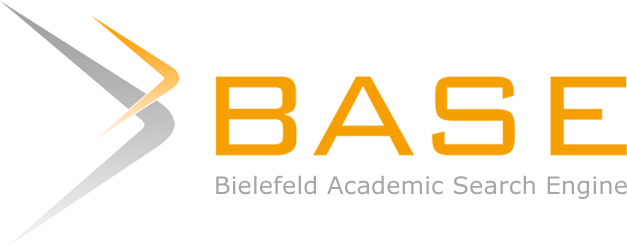Abstract
This study aims to analyze the effect of ESG score and its pillars (environmental, social, and governance score), as a proxy of sustainable companies, on working capital requirements (WCR) and cash conversion cycle (CCC) of Indonesian listing companies for the period 2015-2020. The ESG and pillar scores are obtained from the Thomson Reuters Refinitiv Eikon terminal. The research covers 29 non-financial listed companies in Indonesia in the six years with a total of 174 observations through the purposive sampling technique. This study finds that on average non-financial companies in Indonesia use a conservative working capital strategy which makes the company's working capital too large. Based on balance panel data and the robust OLS method, the result shows that ESG and its pillars can be a determinant in working capital. ESG, environmental pillars, and social pillars scores can reduce working capital requirements and shorten cash conversion cycles. Meanwhile, the governance pillar score does not affect working capital. Hence, ESG, environmental pillars, and social pillars can encourage companies to have lower working capital requirements and shorter cash conversion cycles so that companies with high ESG performance tend to use aggressive working capital strategies and turn the business operates more efficiently. Thus, ESG can lead to resource advantage and be a signal of company efficiency.
References
Horne, J. C. Van, & John M. Wachowicz, J. (2008). Fundamentals of Financial Management. In Professional Housing Management Practices in Hong Kong (13th ed.). Pearson Education Limited. https://doi.org/10.5005/jp/books/10677_12
Ross, S. A., Westerfield, R. W., & Jordan, B. D. (2019). FUNDAMENTALS OF CORPORATE FINANCE (Twelfth ed). McGraw-Hill Education.
Artikel Jurnal:
Akbar, A., Akbar, M., Nazir, M., Poulova, P., & Ray, S. (2021). Does working capital management influence operating and market risk of firms? Risks, 9(11), 1–20. https://doi.org/10.3390/risks9110201
Barney, J. (1991). Firm Resources and Sustained Competitive Advantage. https://doi.org/doi:10.1177/014920639101700108
Barros, V., Falcão, P. F., & Sarmento, J. M. (2021). Are more sustainable firms able to operate with lower working capital requirements? Finance Research Letters, August. https://doi.org/10.1016/j.frl.2021.102407
Chang, C. C. (2018). Cash conversion cycle and corporate performance: Global evidence. International Review of Economics and Finance, 56(December 2017), 568–581. https://doi.org/10.1016/j.iref.2017.12.014
Connelly, B. L., Certo, S. T., Ireland, R. D., & Reutzel, C. R. (2011). Signaling theory: A review and assessment. Journal of Management, 37(1), 39–67. https://doi.org/10.1177/0149206310388419
Deloof, M. (2003). Does working capital management affect profitability of Belgian firms? Journal of Business Finance and Accounting, 30(3–4), 573–588. https://doi.org/10.1111/1468-5957.00008
Ellili, N. O. D. (2020). Environmental, social, and governance disclosure, ownership structure and cost of capital: Evidence from the UAE. Sustainability (Switzerland), 12(18). https://doi.org/10.3390/su12187706
Giese, G., Lee, L.-E., Melas, D., Nagy, Z., & Nishikawa, L. (2019). Foundations of ESG Investing: How ESG Affects Equity Valuation, Risk, and Performance. The Journal of Portfolio Management, 45(July). https://doi.org/https://doi.org/10.3905/jpm.2019.45.5.069
Hill, M. D., Kelly, G. W., & Highfield, M. J. (2010). Net Operating Working Capital Behavior: A First Look. Financial Management, 39(2), 783–805. https://doi.org/10.1111/j.1755-053X.2010.01092.x
Kim, S., & Li, Z. (2021). Understanding the impact of esg practices in corporate finance. Sustainability (Switzerland), 13(7), 1–15. https://doi.org/10.3390/su13073746
Matos, P. V., Barros, V., & Sarmento, J. M. (2020). Does esg affect the stability of dividend policies in Europe? Sustainability (Switzerland), 12(21), 1–15. https://doi.org/10.3390/su12218804
Mohammad, W. M. W., & Wasiuzzaman, S. (2021). Environmental, Social and Governance (ESG) disclosure, competitive advantage and performance of firms in Malaysia. Cleaner Environmental Systems, 2(January), 100015. https://doi.org/10.1016/j.cesys.2021.100015
NOAA. (2021). Global Climate Report for January 2021. State of the Climate. https://www.ncdc.noaa.gov/sotc/global/202101
Omura, A., Roca, E., & Nakai, M. (2021). Does responsible investing pay during economic downturns: Evidence from the COVID-19 pandemic. Finance Research Letters, 42(December 2020), 101914. https://doi.org/10.1016/j.frl.2020.101914
Ross, S. A. (1977). The Determination of Financial Structure: The Incentive-Signalling Approach Author ( s ): Stephen A . Ross Published by : RAND Corporation Stable URL : http://www.jstor.org/stable/3003485 Accessed : 01-05-2016 08 : 49 UTC Your use of the JSTOR archive in. The Bell Journal of Economics, 8(1), 23–40.
Saeed, M. A., Farooq, A., Kersten, W., & Ben Abdelaziz, S. I. (2019). Sustainable product purchase: does information about product sustainability on social media affect purchase behavior? Asian Journal of Sustainability and Social Responsibility, 4(1). https://doi.org/10.1186/s41180-019-0029-3
Sassen, R., Hinze, A. K., & Hardeck, I. (2016). Impact of ESG factors on firm risk in Europe. Journal of Business Economics, 86(8), 867–904. https://doi.org/10.1007/s11573-016-0819-3
Shakil, M. H. (2021). Environmental, social and governance performance and financial risk: Moderating role of ESG controversies and board gender diversity. Resources Policy, 72(May 2020), 102144. https://doi.org/10.1016/j.resourpol.2021.102144
Spence. (1973). Job Market Signaling. The Quarterly Journal of Economics, 87(3), 355–374. https://doi.org/https://doi.org/10.2307/1882010
Surroca, J., Tribo, J. A., & Waddock, S. (2010). CORPORATE RESPONSIBILITY AND FINANCIAL PERFORMANCE: THE ROLE OF INTANGIBLE RESOURCES. Business, 920(October), 1–43. https://doi.org/10.1002/smj
Uyar, A., Karaman, A. S., & Kilic, M. (2020). Is corporate social responsibility reporting a tool of signaling or greenwashing? Evidence from the worldwide logistics sector. Journal of Cleaner Production, 253, 119997. https://doi.org/10.1016/j.jclepro.2020.119997
Wernerfelt, B. (1984). A Resource-based View of the Firm. 5(2), 171–180.
Betsy Atkins. (2020). ESG History & Status. Baja Corp, 1–27.
CRMS Indonesia. (2019). Survei Nasional ESG. https://babel.bps.go.id/indicator/26/959/1/persentase-rumah-tangga-dengan-kepemilikan-aset-dan-jenis-aset-yang-dimiliki.html
Deloitte. (2019). Working Capital Report Southeast Asia 2019. http://lrmd-cpa.com/understanding-working-capital/
Deloitte. (2021). 2021 Climate Check: Business’ Views on Environmental Sustainability. https://www2.deloitte.com/global/en/pages/risk/articles/2021-climate-check-business-views-on-environmental-sustainability.html
IPCC. (2021). Assessment Report 6 Climate Change 2021: The Physical Science Basis. https://www.ipcc.ch/report/ar6/wg1/
JPMorgan Chase & Co. (2021). J.P. Morgan Working Capital Index 2021: Helping companies benchmark for success. 1–23.
Refinitiv. (2021). Environmental, Social and Governance (ESG) Scores from Refinitiv. ESG Scores Methodology, Feb, 1–25. https://www.refinitiv.com/content/dam/marketing/en_us/documents/methodology/esg-scores-methodology.pdf
BNP Paribas. (2020). BNP Paribas Asset Management survey shows Covid-19 prompts rise in social considerations within investment decision-making. 1–3. https://mediaroom-en.bnpparibas-am.com/news/bnp-paribas-asset-management-survey-shows-covid-19-prompts-rise-in-social-considerations-within-investment-decision-making-8e57-0fb7a.html#:~:text=BNP Paribas Asset Management ('BNPP,16%25 plan to do so
Bahasa Abstract
Penelitian ini bertujuan untuk menganalisis pengaruh nilai ESG dan setiap pilarnya (pilar lingkungan, sosial, dan tata kelola), sebagai proksi perusahaan berkelanjutan, dengan kebutuhan modal kerja (WCR) dan siklus konversi kas (CCC) perusahaan terdaftar Indonesia periode 2015-2020. Nilai ESG dan pilarnya didapatkan dari terminal Thomson Reuters Refinitiv Eikon. Pengujian dilakukan pada 29 perusahaan non-finansial terdaftar di Indonesia selama enam tahun dengan total 174 observasi yang diperoleh melalui teknik purposive sampling. Ditemukan bahwa rata-rata perusahaan non-finansial di Indonesia menggunakan strategi modal kerja konservatif yang membuat modal kerja perusahaan terlalu besar. Hasil penelitian dengan data panel balance dan metode OLS robust menemukan bahwa ESG dan pilarnya dapat menjadi determinan dalam modal kerja. Nilai ESG, pilar lingkungan, dan pilar sosial dapat menurunkan kebutuhan modal kerja dan memperpendek siklus konversi kas. Sementara, nilai pilar tata kelola tidak berpengaruh pada modal kerja. Untuk itu, ESG, pilar lingkungan, dan pilar sosial dapat mendorong perusahaan untuk memiliki kebutuhan modal kerja yang lebih rendah dan siklus konversi kas yang lebih pendek sehingga perusahaan dengan performa ESG tinggi cenderung menggunakan strategi modal kerja agresif agar operasional bisnis berjalan lebih efisien. Dengan demikian, ESG dapat mendorong keunggulan sumber daya dan memberikan sinyal efisiensi perusahaan.
Recommended Citation
Rahmita, Vani; Rizkianto, Eko; and Prabowo, Hendro
(2023)
"Pengaruh Nilai ESG Dengan Kebutuhan Modal Kerja: Analisis Perusahaan Listing Indonesia Periode 2015-2020,"
Jurnal Manajemen dan Usahawan Indonesia: Vol. 46:
Iss.
1, Article 2.
DOI: 10.7454/jmui.v46i1.1055
Available at:
https://scholarhub.ui.ac.id/jmui/vol46/iss1/2
Included in
Finance and Financial Management Commons, Human Resources Management Commons, Marketing Commons, Operations and Supply Chain Management Commons







